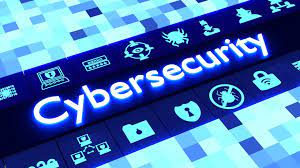In today’s digital age, the security of personal data has become a pressing concern for individuals and organizations alike. With the increasing frequency and sophistication of cyberattacks, safeguarding your personal information has never been more crucial.
This article explores the top five cybersecurity measures to keep your personal data safe. By implementing these measures, you can significantly minimize the risks of data breaches, identity theft, and unauthorized access to your sensitive information ensñar. Let’s delve into the world of cybersecurity and discover the proactive steps you can take to protect your personal data from potential threats.
The Importance of Personal Data Security
In today’s digital age, personal data security has become more important than ever. With the rise of technology, cybercriminals have found new and sophisticated ways to access and exploit our personal information. Whether it’s stealing our financial details, identity theft, or even holding our data hostage for ransom, the threats to our personal data are constantly evolving.
The Potential Consequences of Data Breaches
The consequences of a data breach can be devastating. Not only can it result in financial loss, but it can also lead to reputational damage and emotional distress. Once our personal data is compromised, it can be used against us in various ways, from unauthorized financial transactions to impersonation and fraud. It is crucial to take proactive measures to safeguard our personal data and protect ourselves from these threats.
Creating Strong Passwords and Implementing Multi-Factor Authentication
When it comes to password security, “123456” just doesn’t cut it anymore. Creating a strong password is the first line of defense against unauthorized access to our accounts. A strong password should be long, unique, and include a combination of uppercase and lowercase letters, numbers, and special characters. Avoid using easily guessable information like your name or birthdate. Remember, the stronger the password, the harder it is for cybercriminals to crack.
The Benefits of Multi-Factor Authentication
Adding an extra layer of security to our accounts through multi-factor authentication (MFA) can significantly enhance our personal data protection. MFA requires more than just a password to access an account. It typically involves a secondary verification method, like a fingerprint scan, a text message code, or a security token qiuzziz. By implementing MFA, even if someone manages to obtain or guess your password, they would still need the additional verification method to gain access, making it much harder for unauthorized individuals to breach your accounts.
Keeping Software and Devices Up to Date
We often receive software updates and patches for our devices, and while they may seem like a hassle, they play a crucial role in protecting our personal data. These updates fix vulnerabilities and bugs that cybercriminals can exploit to gain access to our devices or steal our data. By regularly updating our software and applying security patches, we can stay one step ahead of potential threats.
Updating Operating Systems and Firmware
In addition to software updates, it is equally important to keep our operating systems and device firmware up to date. Whether it’s our computer, smartphone, or any other internet-connected device, manufacturers release updates to improve performance and address security issues. Ignoring these updates leaves our devices vulnerable to attacks. So, let’s not delay those annoying upgrade notifications – they are there to help us protect our personal data.
Practicing Safe Internet and Email Usage
The internet is a vast space filled with both legitimate and malicious websites. To protect our personal data, we need to be vigilant about the websites we visit. Look for secure websites that begin with “https” and display a padlock symbol in the address bar. Be cautious when sharing personal information online and avoid clicking on suspicious links or downloading files from unfamiliar sources. Remember, just because a website looks legit doesn’t mean it’s safe.
Best Practices for Safe Email Communication
Emails have become a common target for cyberattacks. To ensure the safety of our personal data, we should practice safe email communication. Avoid clicking on email attachments or links from unknown senders, as they may contain malware or phishing attempts. Be skeptical of emails asking for personal information or urging immediate action incidentalseventy. When in doubt, contact the sender or organization directly through a trusted source to verify the authenticity of the email. Taking these precautions can save us from falling victim to email-based scams and protect our personal data from being compromised.
By implementing these top cybersecurity measures, we can greatly reduce the risks to our personal data and enjoy the digital world with peace of mind. Remember, staying informed and taking proactive steps is the key to keeping our personal information safe from cyber threats. Stay safe, savvy internet users!
Securing Your Wireless Network and IoT Devices
Picture this: you’re at home, happily binge-watching your favorite show on Netflix, when suddenly your internet connection goes kaput. What gives? Well, it turns out your neighbor, let’s call him Tim, has decided to piggyback on your Wi-Fi because his own internet is as reliable as a broken toaster. To make matters worse, Tim has also gained access to your personal data, and now he knows all your embarrassing search history. Yikes!
The moral of the story? Secure your Wi-Fi network with a strong password! Avoid using easy-to-guess passwords like “password123” or “123456”. Get creative, use a mix of uppercase and lowercase letters, numbers, and special characters. And please, don’t use “password” as your password. Seriously, that’s like leaving your front door wide open with a welcome mat that says “come on in, burglars!”
Ensuring IoT Devices are Securely Configured
Internet of Things (IoT) devices, like smart thermostats, voice assistants, and even your smart fridge (yes, your fridge is smarter than you think), can be super convenient. But did you know that they can also be a gateway for cyber criminals to infiltrate your home network? Scary, right?
To keep these sneaky hackers at bay, make sure to properly configure your IoT devices. Change the default passwords and update the firmware regularly. Don’t give cybercriminals an easy way in, because let’s face it, they probably already have enough going on in their lives.
Regularly Backing Up Your Data
Imagine this scenario: you’ve been working on an important presentation for hours, pouring your heart and soul into it. You hit save, feeling a sense of accomplishment. But then, boom! Your computer crashes, leaving you staring at a blank screen of despair. Your precious work is lost, gone forever.
This is why backing up your data is crucial. It’s like having a spare key for your digital life. Whether it’s using an external hard drive, cloud storage, or a combination of both, make sure to regularly back up your files. Trust us, your future self will thank you.
Choosing the Right Backup Method
When it comes to backing up your data, you’ve got options. Are you a fan of the old school? Consider using an external hard drive. They’re like the cool uncle of data storage – dependable and always there when you need them. Or maybe you’re all about that cloud storage life igaony. Services like Dropbox, Google Drive, and iCloud can keep your files safe and sound, no matter where you are. Just remember to choose a method that suits your needs and make it a habit to back up your data regularly. Because losing your files is about as fun as running a marathon with a fridge on your back.
Being Vigilant about Phishing Scams and Social Engineering Attacks
Picture this: you receive an email from your bank, urgently asking you to verify your account details. Being the savvy person you are, you notice a few suspicious red flags: poor grammar, generic greeting, and the fact that you don’t even have an account with that bank. Congratulations, you’ve just dodged a phishing scam!
Phishing scams are like catfishing, but way less romantic. These cyber criminals try to trick you into revealing personal information by pretending to be someone they’re not. Stay sharp, folks! Always double-check the sender’s email address, inspect the email for any suspicious links, and never share sensitive information unless you’re absolutely sure it’s legit. Remember, it’s better to be safe than sorry.
Protecting Against Social Engineering Tactics
You’re at a coffee shop, sipping on your latte and scrolling through Instagram, when suddenly a stranger strikes up a conversation. They seem friendly enough, so you don’t think twice when they casually ask about your mother’s maiden name or your first pet’s name. Little do you know, they’re gathering information to crack into your online accounts. Talk about a moment of vulnerability!
Social engineering attacks rely on manipulating human behavior to gain access to personal data. To protect yourself, be cautious about sharing sensitive information with strangers, both online and offline. Keep your guard up, and remember, not everyone who asks about your childhood pet is trying to steal your identity (but some definitely are).
Prioritizing Personal Data Security in the Digital Age
In a world filled with digital threats and mischievous Tim’s next door, it’s crucial to prioritize the security of your personal data. By securing your wireless network, properly configuring IoT devices, regularly backing up your data, and staying vigilant against phishing scams and social engineering attacks, you can greatly reduce the risk of falling victim to cyber criminals.
So don your cyber superhero cape, protect your digital castle, and remember, personal data security doesn’t have to be intimidating. With the right measures in place, you can enjoy the wonders of the digital age without sacrificing your privacy and peace of mind. Stay secure, my friends!
Prioritizing Personal Data Security in the Digital Age
In conclusion, safeguarding your personal data in today’s digital age is paramount. By following the top five cybersecurity measures outlined in this article, you can establish a strong line of defense against potential threats. Remember to create strong passwords, implement multi-factor authentication, keep your software and devices up to date, practice safe internet and email usage, secure your wireless network and IoT devices, regularly back up your data, and stay vigilant against phishing scams and social engineering attacks. By prioritizing personal data security, you can enjoy the benefits of the digital world while keeping your information safe and secure.






